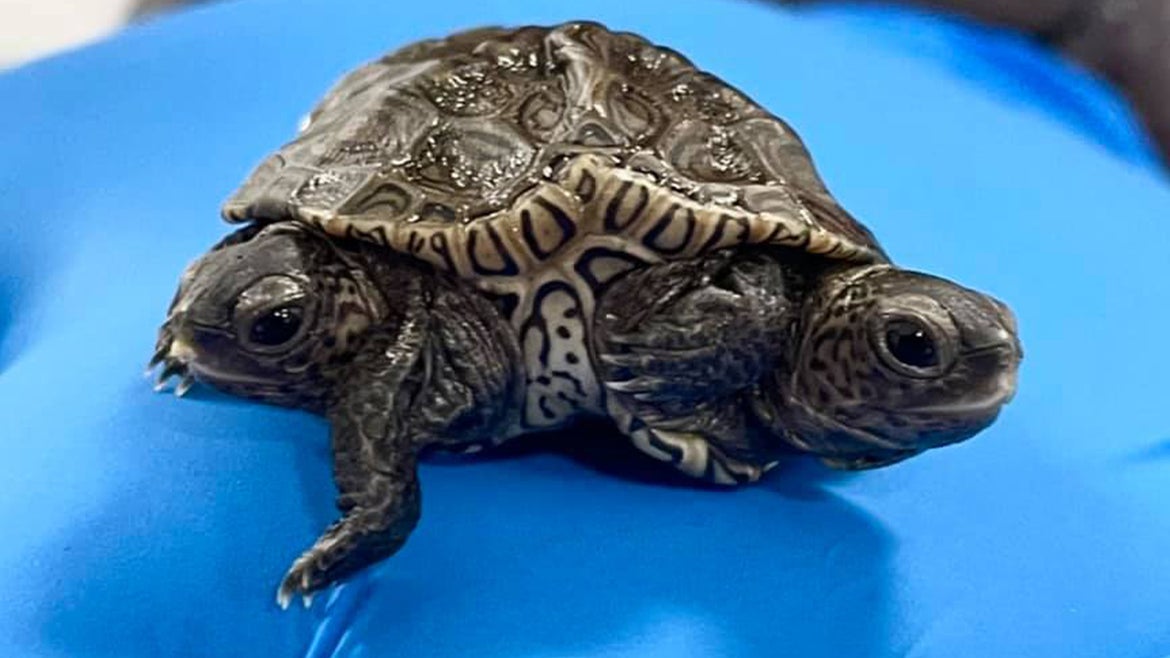The turtle is a rare anomaly that can occur from both genetic and environmental factors that influence an embryo during development, experts said.
No, you are not seeing double. A rare turtle with two heads and six legs has been hatched at a wildlife center in New England.
The diamondback terrapin that was born from a nest in West Barnstable has two independent gastrointestinal systems, and each head works independently to breathe and eat. The turtle also has two spines that fuse together at one point, and each side of the turtle has control of three of the legs, People reported.
A deep-water swim test, in fact, showed that the two sides of the turtle can coordinate swimming and can come to the surface to breathe when needed, the Cape Wildlife Center explained.
The turtle is a rare anomaly that can occur from both genetic and environmental factors that influence an embryo during development, experts said.
“Similar to conjoined twins in humans they share parts of their body but also have some parts that are independent,” the center said. “On admission, both sides were very alert and active and our veterinary team was eager to learn more about them.
Animals with this rare condition don’t always have a long life or a good quality to their life, but since the 2-headed terrains have been under the center’s care for the last two weeks, they have been reported to be “bright and active.”
“They are eating, swimming, and gaining weight each day. It is impossible to get inside the heads of these two, but it appears that they work together to navigate their environment,” they wrote.
When the twins get a little bigger they hope to get them a CT scan that may provide them with more information on the internal structures they share.
“There is still so much to learn about them,” they said.
Supporters of Cape Wildlife Center went on their Facebook page to share in the excitement of this double-headed wonder, and to give a shout-out to the medical team.
"Fascinating! Thanks for all the work you do! I hope these two make it,” someone wrote.
“Beautiful and precious,” wrote another. “I hope they live a long life under the care of the wildlife center.”






